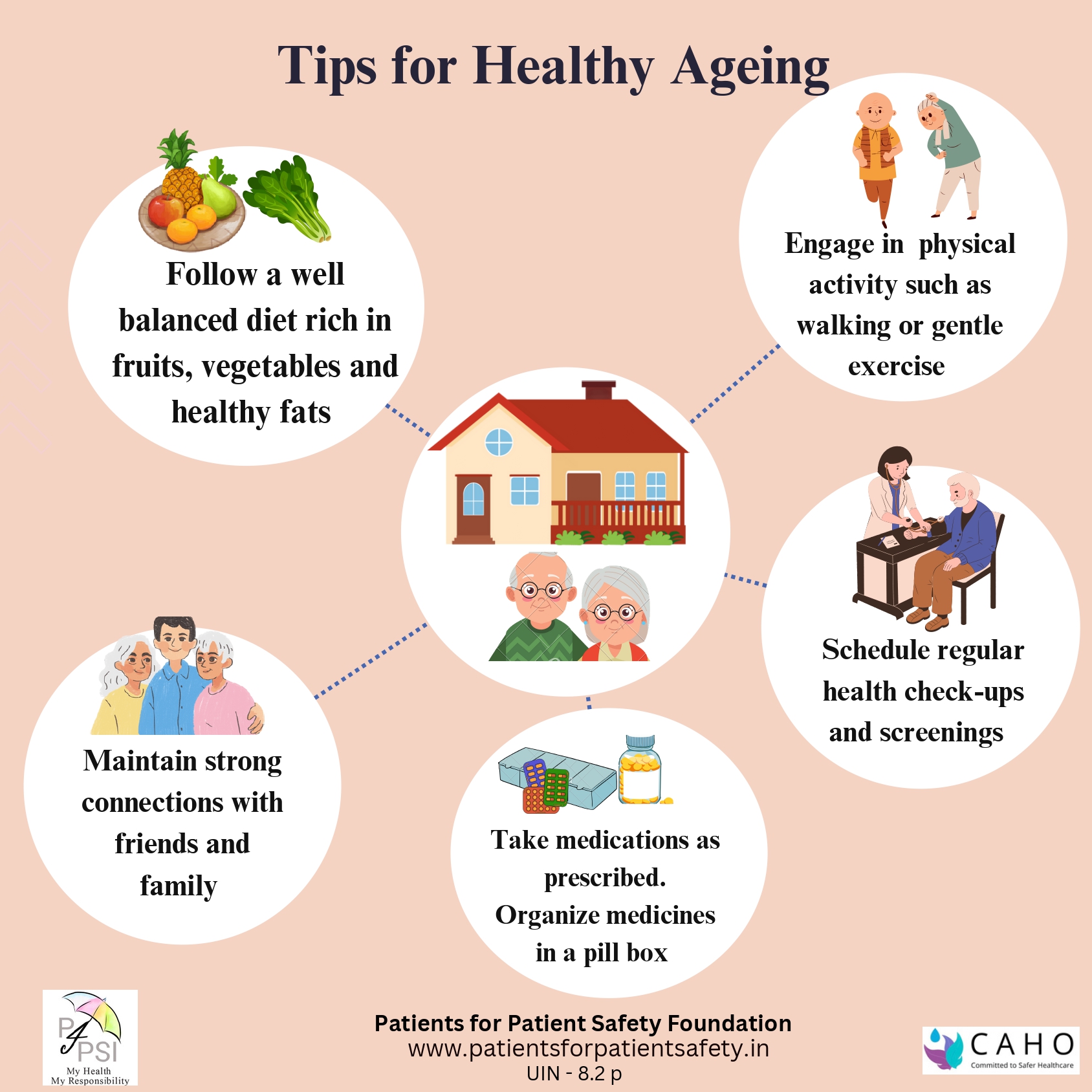
As you age, you are more likely to experience health-related and cognitive problems that could impact your quality of life. Healthy practices related to diet, regular physical activity, medication, and mental activity can help your well-being and independence.
| Vision and Hearing Impairment: Blurry vision and trouble in adapting to different levels of light. Also, difficult to hear high-pitched sounds and follow conversations in noisy places. | Schedule regular checkups with your physicians for advice about glasses, hearing aids, and other corrective devices. This will build your confidence and avoid any mistakes. |
| Joints and Muscles Pain: As bones tend to shrink in size and density, muscles tend to lose strength, which weakens them. This increases the possibility of fractures and other injuries. | Both diet and exercise can help. Ensure the diet contains protein, calcium, vitamin D, and omega-3 found in dairy products, legumes, green vegetables, fish, and eggs. Walking, jogging, and weight exercises help build strong bones and reduce the rate of bone loss. |
| Memory Loss and Thinking Skills: The brain undergoes natural changes that can adversely impact memory and thinking abilities. | Engaging in regular physical exercise, staying socially active, and maintaining close relationships with friends and family can help. Pursuing hobbies and mental exercises like puzzles and reading keep the mind sharp. |
| Poor Oral Health: Missing teeth, gum disease, dry mouth, or tooth decay/cavity can make it difficult to chew and eat certain foods, leading to dietary restrictions. | Brushing teeth twice a day with sensitive toothpaste and using a soft toothbrush helps maintain oral health. Regular dentist visits and cleaning dentures daily prevent infections. |
| Urinary Incontinence: The urinary bladder may become less elastic as you age, resulting in frequent urination and sometimes accompanied by pain. | Maintain a healthy weight and reduce some if overweight. Avoid caffeine, acidic foods, and alcohol. Use the toilet whenever available. If necessary, wear adult diapers, especially at night or when you are out of your home. |
Enjoy outdoor activities and visit parks as nature is a natural mood elevator, meeting friends or family can reduce loneliness. Travel whenever possible and organize trips to suit you. Enjoy the freedom and liberty of getting old comfortably
